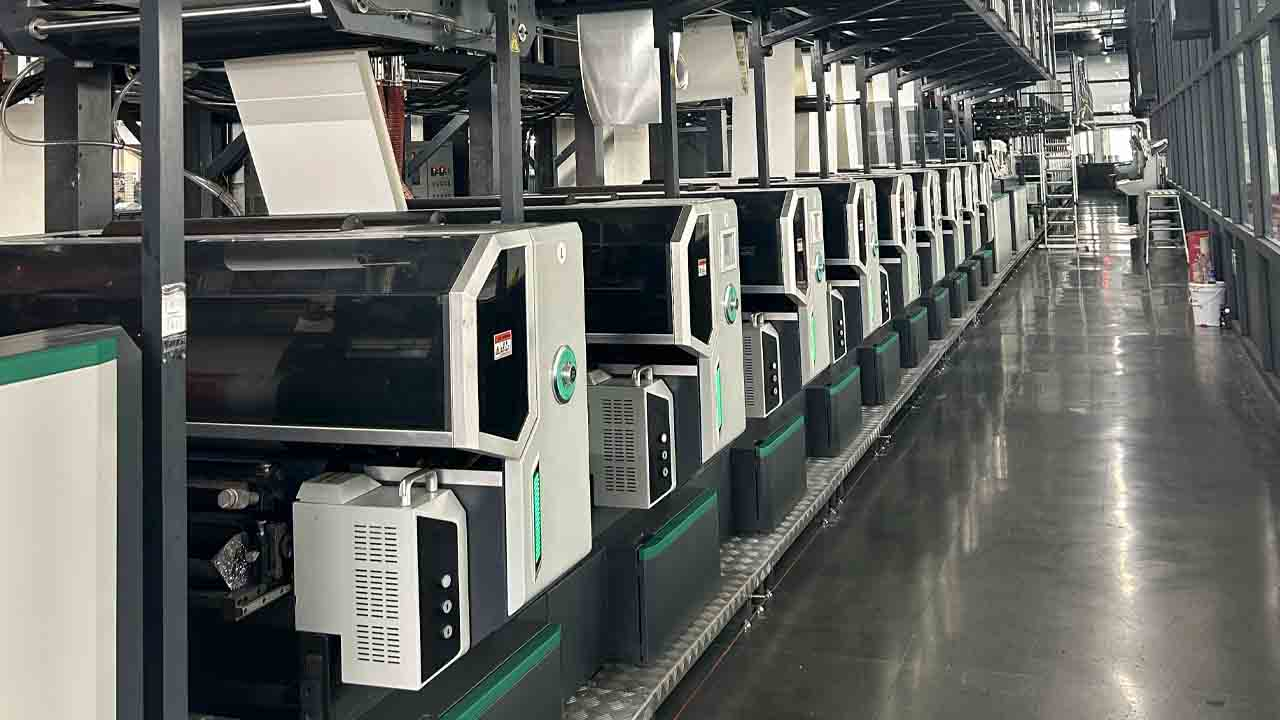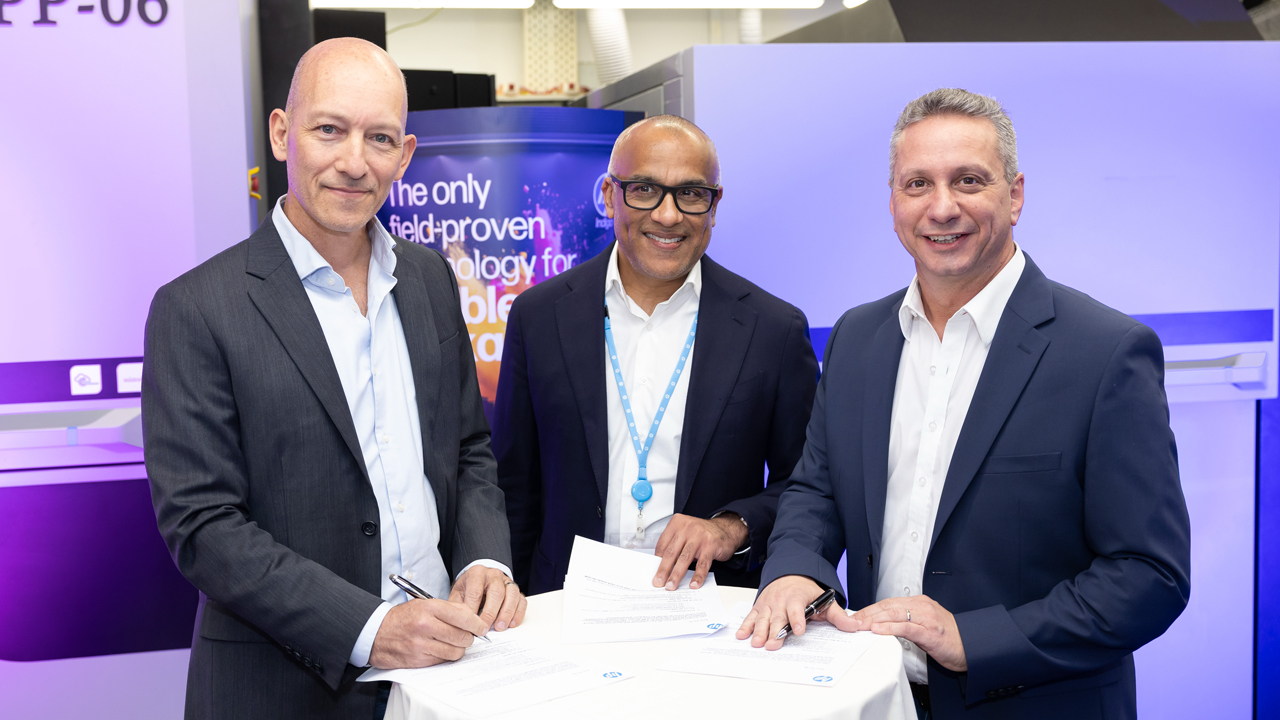AP Label invests in Spande
This latest hybrid investment allows a leading Chinese label converter to off er fast response and innovation to its brand customers.

With 25 years of deep roots in the label printing industry, Suzhou AP Label has transformed from a traditional label converter to a modern high-tech company that has integrated high-powered R&D and sustainable production.
Founded in 2001, AP Label has consistently adhered to the service philosophy of ‘delivering what you need, anticipating what you haven’t thought of’.
Its products include self-adhesive labels, track-and-trace anti-counterfeiting labels, and shrink sleeves, all of which are widely used in a range of industries, including household chemicals, food and beverages, healthcare, chemicals, electronics and cigarette packaging.
Three technical updates
As a veteran enterprise in China’s label printing industry, developments at Suzhou AP Label have always been followed closely by the wider industry.
During its 25-year journey, every step has been in harmony with the technological changes in China’s printing industry. From an initial small-scale printing factory to a modern enterprise in Suzhou today, AP Label has built a production workshop covering an area of 11,000sqm, with over 190 employees and a monthly production capacity of more than 200 million labels.
This transformation was driven by three key technology investments. In 2008, when the domestic label market was still dominated by 4-color letterpress printing, AP Label was the first to introduce an imported web-fed flexo press, expanding its capabilities to 8-color printing. Over the following 10 years, the company installed 10 more flexo presses, making this technology its main production force.
The second transformation occurred in 2013 when AP Label seized the opportunity to invest heavily in developing short-run label capabilities with Xeikon, Domino and HP Indigo.
This new capacity not only significantly shortened the company’s response times to customer orders but also, through the innovative combination of digital and flexo printing technology, allowed the development of a variety of innovative functional labels targeted at supporting new product launches by brand owners.
The third transformation came in December 2024, when AP Label signed a contract for the first General Inkjet Printing (GIP) Spande 1,200 DPI digital and flexo hybrid press in China.
The company became the first supplier to pilot a new initiative to reduce the carbon footprint of L’Oreal in the North Asia region
The GIP Spande Label Modular 330 HD allows flexible integration of UV inkjet printing with highly automated flexo printing modules. The digital module is suitable for short-run orders, with a speed up to 80m/min; the flexo printing section is competent for larger production runs, operating at 200m/min. It takes just 15 minutes to switch between these two modes.
‘The combination of digital and flexo printing is not a brand-new concept for us,’ says Zhong Liang, marketing director of AP Label. ‘After the introduction of digital presses, we have combined the two technologies offline. A few years ago, when hybrid devices appeared on the market, we also conducted an investigation. We found at that time, the technology was not yet mature, so we chose to postpone the investment.’
The equipment has been in production for six months and is primarily used to produce high-end household chemical labels. Its adoption has streamlined the converter’s production workflow, significantly boosted efficiency while reducing the risk of human error.
Quality and innovation
Consistent with its investment in equipment upgrades, AP Label has maintained an unwavering commitment to product quality and innovation throughout its development journey.
‘A label accompanies a product throughout its entire lifecycle; this is why brands hold strict quality standards,’ notes Zhong Liang. ‘Our clients have multifaceted requirements. A high-quality label is more than just a reflection of product quality; it serves as a critical bridge between brands and consumers; it helps products stand out on shelves through detailed craftsmanship, becoming a pivotal touchpoint that resonates with consumers.’
To strengthen its quality procedures, AP Label has built a full chain of quality control procedures and obtained multiple certifications.
AP Label has also excelled in innovation, holding 36 industry patents covering hardware and technical solutions across production and process control, testaments to its strong innovation capabilities. This has earned the company ‘Jiangsu High-Tech Enterprise’ status.
It is precisely this dual commitment to quality and innovation that has propelled the company’s business expansion. From its initial focus on household chemical labels to gradual entry into more diverse sectors such as food and beverages, industrial chemicals and healthcare.
Sustainability
Leading brands now want more from labels than just quality print. They expect labels to integrate seamlessly into overall packaging and meet pressing sustainability needs. AP Label leads the industry in green development, with a full-chain system to address brands’ environmental requirements.
AP Label’s sustainability efforts have earned recognition, including carbon neutrality certification from SGS, a CDP A rating, and designation as a 3A Green Factory in Suzhou (2024).
The company also became the first supplier to pilot a new initiative to reduce the carbon footprint of L’Oreal in the North Asia region.
Stay up to date
Subscribe to the free Label News newsletter and receive the latest content every week. We'll never share your email address.


